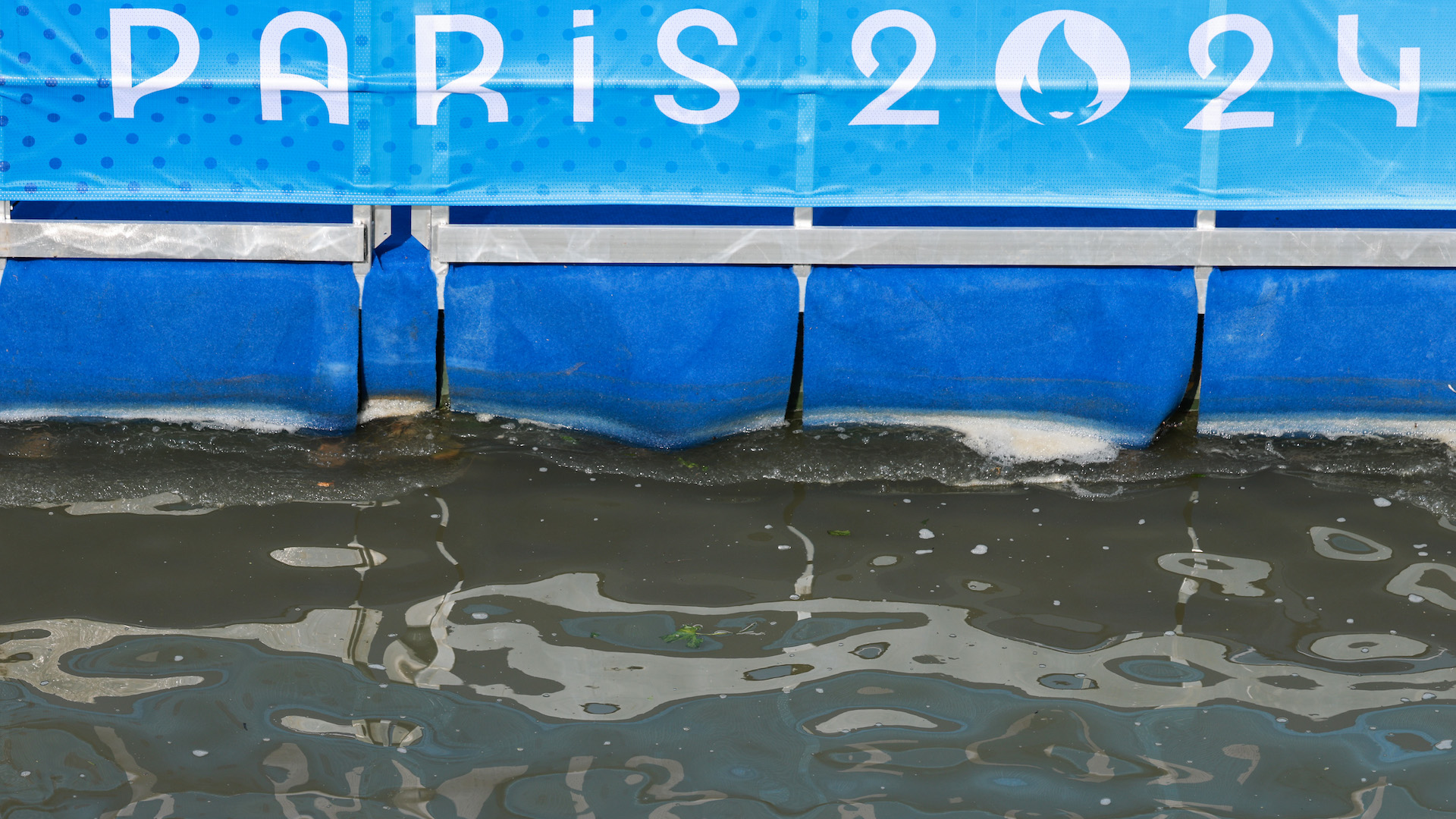The games must go on, even in the poop river. On Sunday, the Belgium Olympic team withdrew from the mixed relay triathlon event; one of its athletes, Claire Michel, fell ill after swimming in the Seine, though it is not yet confirmed that the poopy Seine water is the cause. According to Olympic organizers, further tests of the water quality, conducted in the lead-up to today's triathlon, led to the river being deemed safe enough to proceed.
Like many other urban rivers, the Seine is a poop river, but unlike many other urban poop rivers, the Seine drew attention due to hosting Olympic swimming. Most city sewage systems are designed so that when they receive a heavy influx of rainwater, they disgorge sewage directly into the waterways, rather than risk backups into people's homes. As a result, the Seine hasn't been available to the public for swimming in more or less a century. In the lead-up to the Olympics, it underwent a hefty $1.5 billion project to make it swimmable, including renovations of the sewage system and construction of a basin to help catch rainwater, though heavy rain can still cause the conditions to dramatically deteriorate.
In the triathlon's case, neither "swimmable" nor "safe enough" mean no E. coli bacteria in the water. According to World Triathlon standards, anything up to 1,000 colony-producing units of E. coli per 100 milliliters of water is considered "good" quality. Some athletes prepared for this either accordingly or overzealously, by your measure: American triathlete Seth Rider declared that he wasn't washing his hands after going to the bathroom, in an attempt to help increase his E. coli threshold. This decision was "apparently science-backed" according to The Athletic, thought it additionally came with the caveat of "whether doctors agree with Rider or not."
No doubt the 1,000 colony-producing units of E. coli threshold is a well-tested bright line, but it has several implications. Does someone have to manually count out the 1,000 or fewer colony-producing units of E. coli in the 100 milliliters of water? The answer to this used to be yes, but now various softwares exist to perform the task automatically. Would it really be so bad if I swam in water that contained 1,001 colony-producing units of E. coli? (1,001 Colony-Producing Units Of E. Coli was also the name of a 101 Dalmatians spinoff killed in production.) What about 1,005? 1,100? When push comes to shove, what would be my personal E. coli threshold?
I once went on a hike down to Wissahickon Creek, where we struck up conversation with a very nice middle-aged man who was fishing there. He explained to us that the city stocked the water with fish, and warned us off swimming because the creek, which is a tributary of the Schuylkill River, contained sewage. We weren't planning on swimming anyway, though as we spoke, a group of four other people was already swimming in the water. It was a hot day, and I understood the temptation to dunk my head under water, even as I was not personally willing to succumb to it. It is a shame that most urban rivers remain so inaccessible to the public, and it would be an unequivocal good if, due to the Olympics project, the Seine one day reached a point of being open to the public for swimming—as currently planned—even if the implications of swimmable urban river water will always be water that contains some poop, just not too much of it.
The headline is a lie. I do not think that I have the immune system of a triathlete. I am uninterested in microdosing on E. coli. I think that I will swim in a poop river if and only if said river meets the World Triathlon designation of "excellent," which is fewer than 500 colony-producing units of E. coli per 100 milliliters of water. But if 501 colony-producing units of E. coli per 100 milliliters of water ye see, too much poop for swimming in the river there be.






